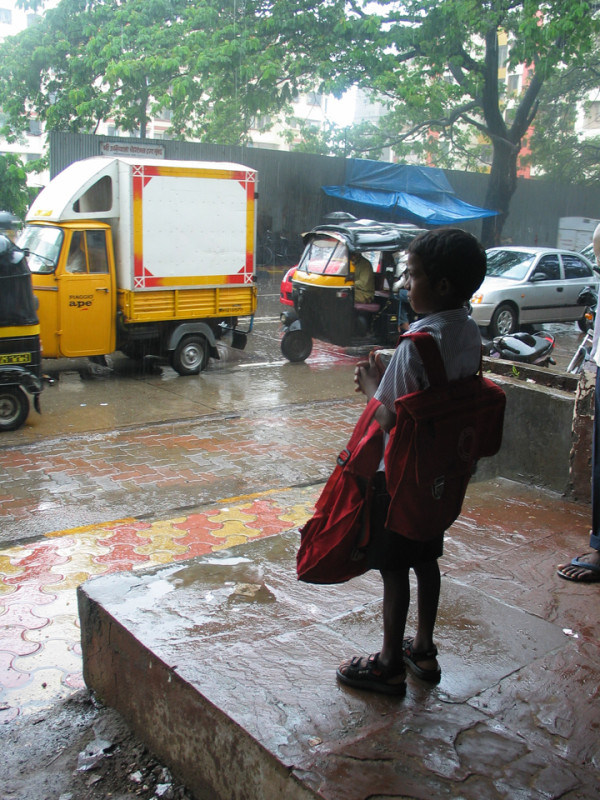Via Shiva Shankar
‘The USA and other countries too, should pass such a law. Only then,
perhaps, will Hindus be shamed into concrete action against the
‘unparalleled social abuse of untouchability (A.J.Toynbee)’.
——————-
Radio Australia
Britain outlaws caste discrimination
http://www.radioaustralia.net.au/international/radio/program/asia-pacific/britain-outlaws-caste-discrimination/1121320
Britain has outlawed caste discrimination, after the House of Lords voted for legal protection to be given to the most vulnerable, mainly in the Indian and Sikh communities.
This includes the estimated 400-thousand ‘Dalits’ or from the so-called ‘untouchable’ caste who live in the UK.
Campaigners for the law have applauded the outcome, saying legislation was needed as thousands of people suffered abuse and discrimination because they were considered to be low caste.
Presenter: Sen Lam
Speaker: Usha Sood, human rights barrister, Trent Chambers, UK.
SOOD: It’s not restricted to one community and what’s happened I think, in the migration of Asians to Britain, is that different communities have migrated and have faced collective inequality or discrimination issues, mainly from the host community. But this is a new surfacing of the
‘in-built’ prejudices within those (Asian) communities. It exists within the Indian community and the Hindus and the Sikhs, but it also exists
within the Muslim community as well.
LAM: Let’s take the Indian community – there’re 400-thousand Dalits or so-called Indian ‘untouchables’ in the UK – can you give us some examples of how they’re discriminated against in a modern, developed country like the UK?
SOOD: In relation to this, you’ll find that most of the host community wouldn’t know somebody by their caste, because they won’t be able to
distinguish or differentiate between them. So let’s take the Indian community, for example. There’re definitely discriminatory practices in
relation to services being provided, employment being provided, marriages being allowed to be consecrated, or even just in the participation of some of these people in religious festivals or observances.
LAM: Local reports described it as a ‘U-turn’ on previous government
policy – given that it’s a fundamental human rights issue, why was the
British government reluctant earlier, to legislate before?
SOOD: I think as with a lot of things, the government is reluctant to put statutes on the books, just for the purpose of changing society’s attitude. It’s often felt that that will change in time. But what I’m sure has happened is, there has been lobbying of the House of Lords, which has passed the bill twice, to include caste discrimination. And the Dalit community feels that it’s going to take too long for natural events to take place, and for them to be given positions of equality, when it affects their daily lives. And I reiterate, it does affect their daily lives, because they may not be able to attend for example, a particular temple, or take part in particular events. So perhaps get jobs from those people.
LAM: So, from a human rights perspective, you’d say that this legislation is very helpful?
SOOD: Extremely helpful. And I think where there is this sort of malpractice, it’s useful to have a proper carrot to make the discrimination go away, because one thing is for sure – if it’s a legal requirement, people will observe it. And certainly in the West, where they know that the law will be enforced. This time, I think they’re dealing with their own ‘in-built’ prejudices, which have been kept away from the wider society for some time. So this is something that’s coming to the surface more and more.
LAM: And you may legislate against discrimination at the work place, or in terms of missed opportunities, but how hard is it to change entrenched attitudes and prejudices. For example, do you think there’s a role here, for local authorities to work with these communities concerned?
SOOD: Well, it doesn’t occur to these local authorities, I think, in these situations, to tackle something like this – inbuilt prejudices within the
community, because they feel that they can’t approach it from within. But I think those community leaders and those religious leaders who perhaps have been reinforcing these attitudes, will have to face the facts that they can’t do it openly. It won’t necessarily drive it underground, because it is quite easy to be very, very confrontational about why aren’t we allowed to marry in this temple, or why am I not getting this job – I
want freedom of information request, to see who got the job and why they got the job. So, there’re measures that I think that are available to
people, to tackle these things.
LAM: The government has asked the Equality and Human Rights Commission to examine the nature of caste prejudice – what can you tell us about this?
SOOD: It’s an ongoing project and I can’t say very much about it, because the terms of reference have still not yet been announced. It is the right body to do this, and I hope it does a comprehensive investigation, because certainly, it needs to know, in which pockets of people’s lives this is most rampant, and then it can deal with it accordingly.










